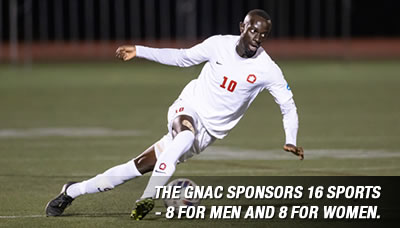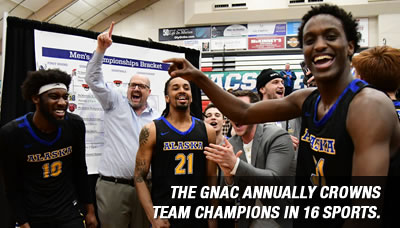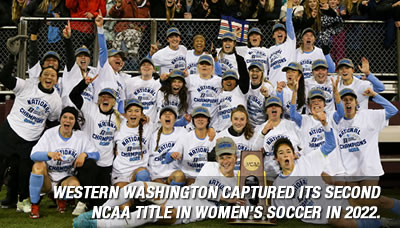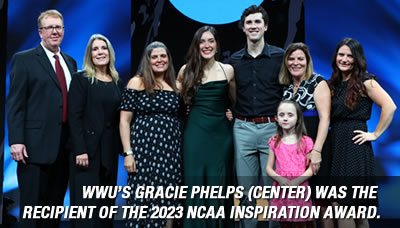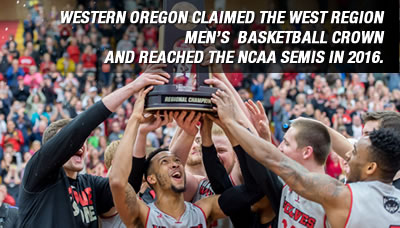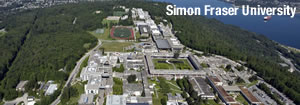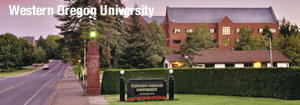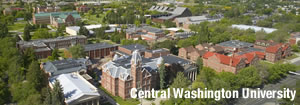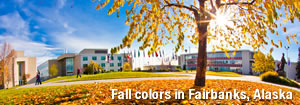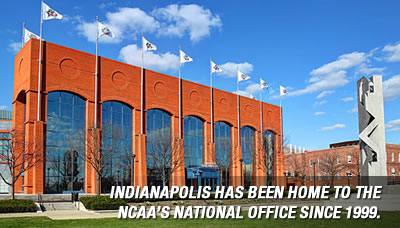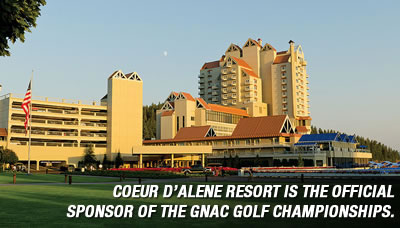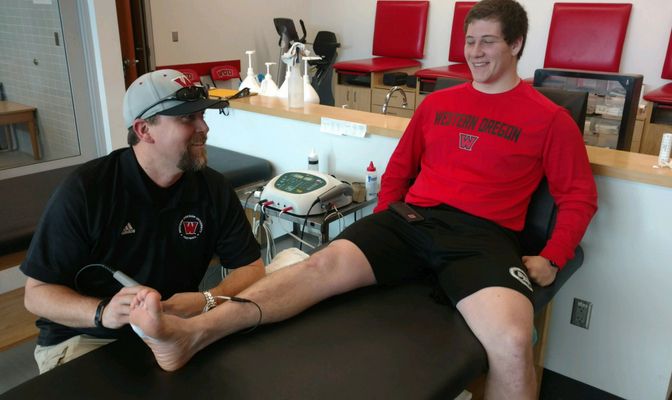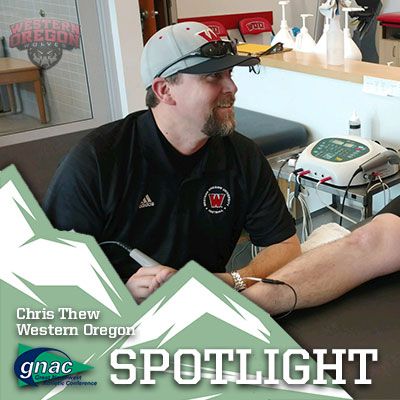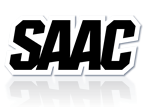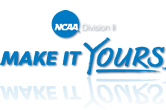Friday, June 15, 2018
Part of a regular series.
Throughout the year, GNACsports.com uses this space to profile conference student-athletes, coaches, and administrators. Collectively, it is these individuals who make the GNAC one of the top NCAA Division II athletic conferences in the nation.
Name: Chris Thew
Institution: Western Oregon
Years at Institution: 1
Hometown: Cove, Ore.
Colleges Attended & Degrees: Eastern Oregon University (Undergraduate, Physical Education and Health), University of Nebraska at Omaha (Graduate, Athletic Training)
Sports In Which You Have Served As A Primary Athletic Trainer: Football and cross country.
What Prompted Your Interest In A Career In Athletic Training: Like many athletic trainers, I was drawn to the profession because of the thrill being involved in athletics and helping people participate in physical activity to the best of their ability. I grew up loving sports and knew from a very early age that I wanted to remain connected as long as I could. I found out about athletic training in high school and knew that was going to be the job for me. I love medicine and helping people, so I couldn't think of a better profession than athletic training.
Who Has Been The Biggest Influence On Your Career: I have had numerous people that have influenced me in my career, and I truly believe that there are always people to learn from throughout your career. The two most influential people in my career were both involved in my early education and helped inspire me to be my best. The first person was Ken Kladnik at Eastern Oregon University. He helped fuel the passion and drive to pursue athletic training through its ups and downs. The second person is Rusty McKune at University of Nebraska at Omaha. He helped drive me to continue to seek opportunities to learn and grow in education and experiences beyond what is provided at school. Without these two individuals, I wouldn't be who I am and where I am as a professional.
For You Personally, What Are The Most Satisfying Aspects Of Being An Athletic Trainer: The most satisfying aspect of athletic training to me is when I get to help an athlete recover from an injury and be just as successful, if not more, than they were prior to their injury. To help somebody through the physical and mental turmoil of injury is very rewarding.
What Are The Most Challenging Aspects Of The Job: The most challenging aspect of being an athletic trainer for me is the balancing act of being a husband, father and an athletic trainer. The volume of time that it takes to be a good athletic trainer can really grind on a family and I am extremely lucky to have a family that supports my career. It is also challenging to find a position that is equally supportive of your family life and I am lucky to have that at Western Oregon.
What Is The Most Misunderstood Aspect Of The Athletic Training Profession: I feel the most misunderstood aspect of athletic training is the perception that we are water-boys (girls) or personal trainers. People tend to not understand that we are medical professionals. We as athletic trainers have an extensive education combined with practical experiences that develop us to be an integral part of the overall healthcare of, not just athletes, but anyone involved in physical activity.
What Is One Key Element Of Your Job That Most People Would Not Realize: I think the what most people don't realize is that what they see on TV or at a sporting venue is only 10 percent of what we do as athletic trainers. People don't see the times that we show up to work before 5 a.m. to do treatments before morning practices or the late nights spent traveling. They also miss the hours spent helping athletes rehab their injuries or the hours of documentation that we have to do.
What Has Been The Biggest Change In Athletic Training During Your Career: I believe that one of the biggest changes in athletic training has been the educational process. Athletic training has really made strides to become more scientifically based which helps the profession continue to provide the most up to date practices. Hopefully, this continues to help athletic trainers to progress our profession in the medical community and our various job settings.
What Do You See As Primary Health Concerns Currently In College Athletics: I feel that the primary health concerns in college athletics, besides orthopedics, are with the mental, nutritional and cardiac health of the athletes. Treatment of the athletes’ overall health is becoming much more prevalent and important in getting positive outcomes. As an athletic trainer, it is important to not just focus in on the specific injury of an athlete when there could be other health aspects that might need to be addressed to truly help the athlete.
What Advice Would You Give To A High School Or College Student Interested In Pursuing A Career In Athletic Training: I would encourage anybody wanting to explore athletic training to spend some time shadowing in various job settings. It is a hard job to really grasp without actually spending time observing. Talk to athletic trainers, find out what drives their passion and what are their biggest frustrations with the profession. If the person finds the desire to join athletic training, then they need to jump in and enjoy the ride.

